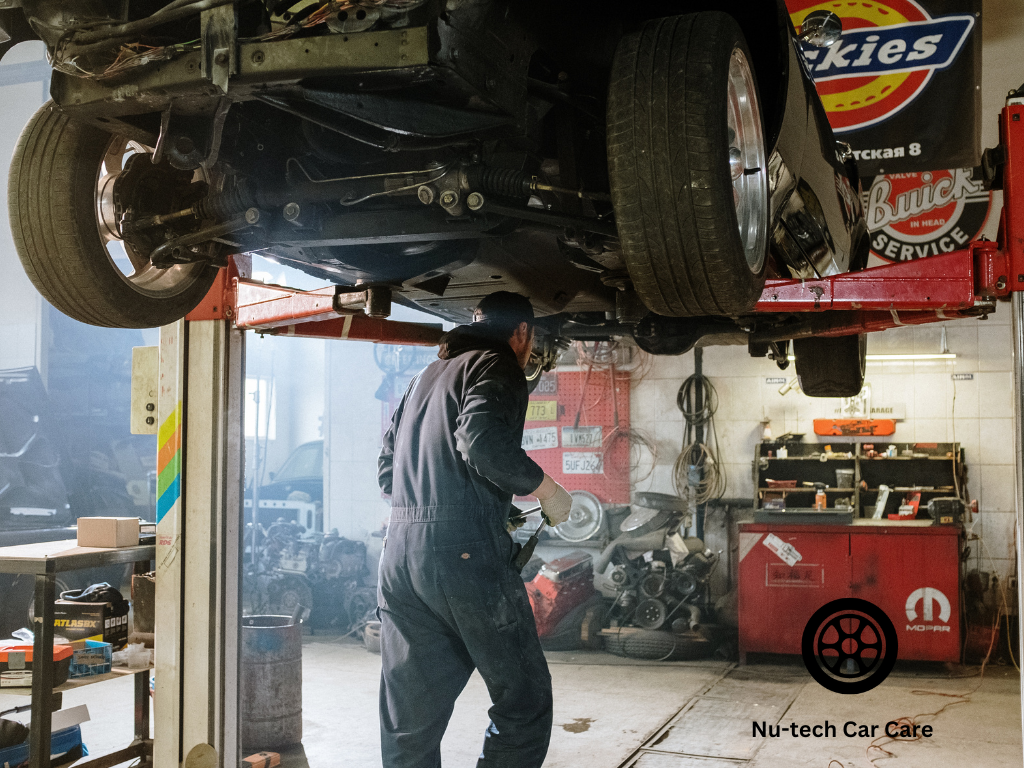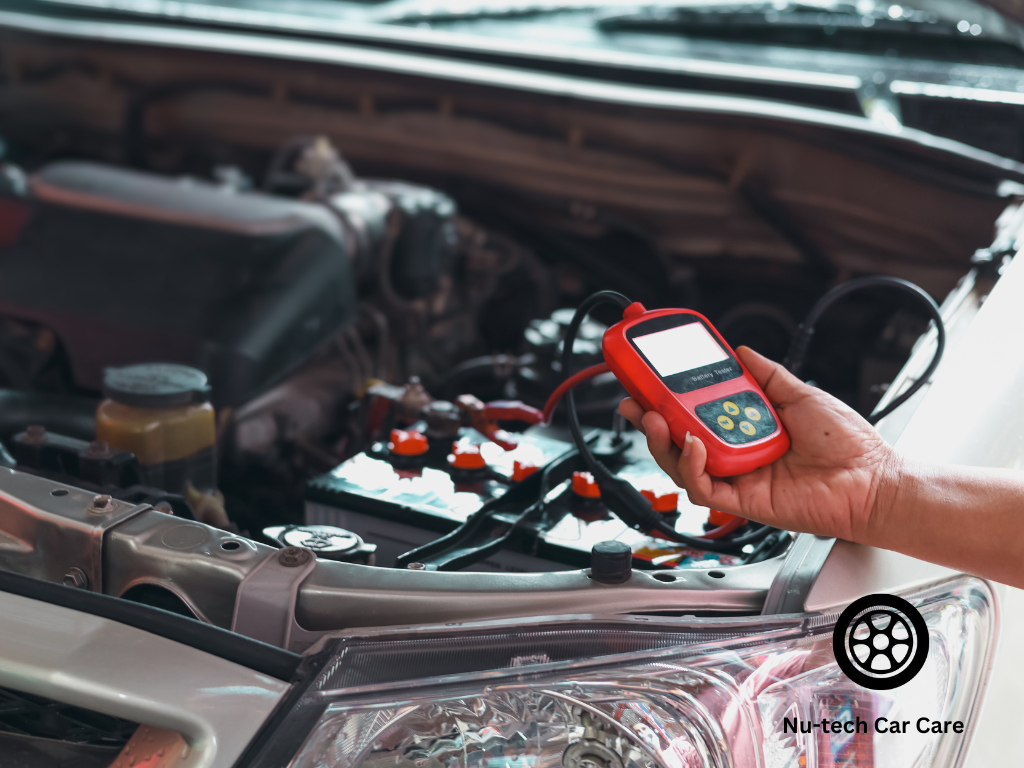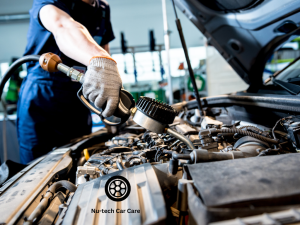[joili-toc]
Fleet management requires attention to detail and proactive measures to keep vehicles running smoothly. Vehicle scanning is a vital tool in this process, helping managers maintain fleet performance and safety. Vehicle scanning uses diagnostic tools to check the health of a vehicle’s systems. From identifying engine faults to detecting sensor issues, it provides valuable insights that help fleet managers address problems before they escalate.
For a fleet, this translates to better performance, fewer breakdowns, and improved safety on the road. Regular scans ensure every vehicle operates efficiently, meeting both operational and regulatory standards.
The Importance of Regular Diagnostics for Long-Term Car Maintenance
Routine Car Maintenance is key to extending the life of a fleet. With vehicle scanning, fleet managers can create a maintenance schedule tailored to each vehicle’s needs.
By catching issues early, such as a worn-out part or a failing sensor, scanning prevents minor problems from turning into expensive repairs. This not only saves money but also minimizes downtime, keeping the fleet operational.
Tracking Maintenance History with a Logbook for Cars

Benefits of Keeping a Logbook for Cars in Fleet Management
Keeping accurate maintenance records is essential for fleet management. A logbook for cars provides a clear history of every repair, service, and diagnostic scan, ensuring nothing is overlooked. A well-maintained logbook for cars offers several advantages. It helps managers track past repairs, identify recurring issues, and plan future Car Service needs.
With detailed records, fleet owners can also prove compliance with maintenance standards, which is crucial for insurance and warranty claims.
Using Scanning Data to Update Maintenance Records and Schedules
Vehicle scanning plays a crucial role in updating maintenance logs. After every scan, the results can be recorded in the logbook to provide a real-time overview of a vehicle’s condition.
This ensures that upcoming Car Maintenance is scheduled based on actual data rather than guesswork, making the fleet’s upkeep more efficient and cost-effective.
Preventing Downtime with Proactive Car Care
Detecting Issues Early to Avoid Breakdowns and Costly Repairs
Downtime is one of the biggest challenges in fleet management. Regular Car Care combined with vehicle scanning can significantly reduce the chances of unexpected breakdowns. Vehicle scanning detects problems that may not yet show visible symptoms, such as low battery voltage or a failing transmission. Addressing these issues early prevents expensive repairs and keeps vehicles on the road.
For instance, a quick scan could reveal that a sensor needs replacing, allowing fleet managers to schedule a repair during routine maintenance rather than dealing with an emergency breakdown.
How Car Care and Regular Scans Ensure Vehicles Stay on the Road Longer
Proactive Car Care ensures that vehicles are always ready for their next job. Regular scans, combined with scheduled Car Service, help maintain engines, brakes, and other critical systems.
This approach not only improves reliability but also extends the lifespan of the fleet. By prioritizing maintenance and diagnostics, fleet managers can maximize the value of their vehicles while ensuring they remain safe and efficient.
Finding Reliable Services Like Mechanics Open on Sundays

Why Accessible Mechanics Open on Sundays Are Crucial for Fleets
Fleet management doesn’t follow a traditional Monday-to-Friday schedule. Vehicles can experience issues any day of the week, making it essential to find mechanics open on sundays to keep operations running smoothly. Sunday service availability ensures that fleets don’t lose valuable time waiting for repairs. Whether it’s a minor issue or an urgent fix, access to mechanics open on sundays allows vehicles to get back on the road quickly, minimizing downtime.
For fleet managers, this flexibility is invaluable. With a busy schedule and tight deadlines, knowing there’s help available any day of the week provides peace of mind and operational efficiency.
Combining Professional Diagnostics with Car Service for Optimal Results
Professional diagnostics combined with regular Car Service ensures that all vehicles in the fleet operate at their best. Reliable mechanics use vehicle scanning tools to identify hidden issues and address them during routine maintenance.
By scheduling services on weekends, fleet managers can align diagnostics with repairs, optimizing both time and resources. This approach keeps vehicles ready for the workweek while preventing unexpected breakdowns.
Integrating Vehicle Scanning with Fleet Management Software
Automating Diagnostics and Maintenance Schedules with Advanced Tools
Modern fleet management relies heavily on technology to streamline operations. Integrating vehicle scanning with fleet management software simplifies maintenance and enhances overall efficiency. Fleet management software can automate the process of tracking diagnostic results and scheduling maintenance. When paired with vehicle scanning tools, it provides real-time data on each vehicle’s condition.
This automation helps fleet managers identify which vehicles need attention and when. It eliminates the guesswork and ensures that maintenance schedules are followed consistently, reducing the risk of missed services.
Benefits of Connecting Vehicle Scanning Results to Fleet Tracking Systems
Linking scanning data to fleet tracking systems creates a comprehensive overview of your operations. For example, you can monitor fuel efficiency, track mileage, and identify patterns in vehicle performance.
With this integration, fleet managers can make informed decisions about Car Maintenance and Car Care, ensuring every vehicle remains in top condition while optimizing costs.
Cost Savings Through Efficient Fleet Car Maintenance

How Vehicle Diagnostics Reduce Fuel Costs and Repair Expenses
Fleet management can be expensive, but efficient Car Maintenance and regular diagnostics help keep costs under control. Frequent vehicle scanning helps detect inefficiencies, such as poorly performing engines or worn-out components. Addressing these issues early can improve fuel efficiency and prevent expensive repairs.
For example, a scan might reveal that a vehicle’s oxygen sensor needs replacement. Fixing this promptly can significantly reduce fuel consumption and avoid further damage to the engine.
Keeping Vehicles in Peak Condition to Maximize Return on Investment
A well-maintained fleet is a cost-effective fleet. Regular Car Care, combined with the insights provided by vehicle scanning, extends the lifespan of vehicles, ensuring you get the most out of your investment.
By keeping vehicles in peak condition, you reduce unplanned expenses and ensure reliable performance. This approach not only saves money but also improves customer satisfaction by ensuring timely deliveries and services.










